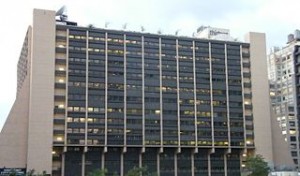News in the age of social media: Never wrong for long
A tweet falsely emanating from Associated Press, the trusted news agency, sends the US stock market into freefall. CNN (and AP) announce that the Boston marathon bomber has been caught, days before the assertion becomes reality. Reddit, a news-sharing platform based in San Francisco, helps a 21st century witch hunt for those who attacked Boston, in the process wrongly implicating many innocent people. (Not least Sunil Tripathi, an Indian-American student who went missing a month before the marathon but was villified as one of the perpetrators, much to his family’s distress).
Spot the thread that runs through the three separate events. Misinformation emanating from real or fake media outlets or platforms (in the modern lingo).
One might have thought it a grand conspiracy if I weren’t too cynical to believe journalists could work together so seamlessly (and selflessly) three times in seven days in order to underline the crucial importance of well-sourced, well-paid, professional journalism.
Consider the most recent panic, causing (gollygosh) a 143-point fall in the Dow Jones industrial average. AP’s Twitter feed was hacked and it reported that the White House had been hit by two explosions and Barack Obama was injured. It corrected this as soon as it found out but it was a reminder that breaking news in the age of social media is often just that – news so fragile it breaks into a thousand shards at the merest examination.

CNN’s John King wrongly reported that the Boston bomber had been caught, days before it became true. To his credit though, he acknowledged the mistake publicly
Then there’s the pressure of being first and always having something new to say in the 24/7 news cycle. Notably, CNN’s inaccurate report of an arrest two days after the Boston bombing. It highlighted, as the New York Times said, the problem with not having “a village common where a reliable provider of news held the megaphone.”
That reminds me of one of the most dismissive descriptions ever coined for CNN. “Never wrong for long,” we used to jeer when I worked at the BBC World Service at its grand old home on The Strand in London. Unfortunately, that’s more likely than ever in this age of information tsunamis, when, as President Obama said, “there’s a temptation to latch on to any bit of information, sometimes to jump to conclusions.”
In Haitian Creole, it’s called teledyol or radiodyol, which is native-speak for rumour.
He added, “but when a tragedy like this happens, with public safety at risk and the stakes so high, it’s important that we do this right. That’s why we have investigations. That’s why we relentlessly gather the facts.”
And that’s why the US should freely plump for the biggest free-market choice of them all – paying for public service broadcasting.
There will still be hacked Twitter/ email accounts but at least people won’t believe everything they hear till it’s confirmed via the megaphone held aloft by a reliable, solid provider of news.


